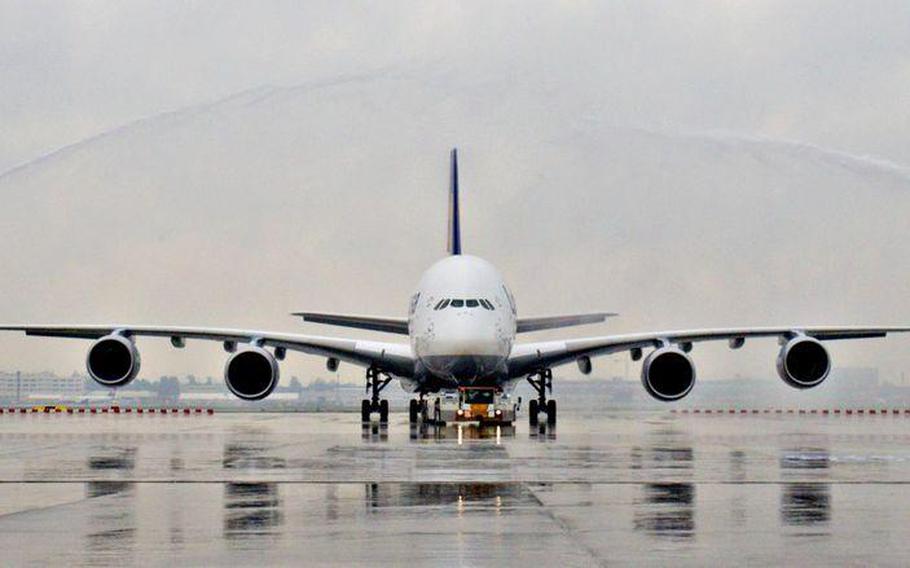
Airbus is a defense contractor, and it makes weapons for countries around the world. Even the United States. Now, though, Airbus is especially concerned about potential sanctions on a Russian-supplied metal, titanium. (Facebook)
History teaches that a country that doesn’t control its source of raw materials is in trouble during wartime. In both World Wars, for example, Germany often struggled to get enough raw materials to fuel its war machine or feed its civilian population. At the same time, the United States rose as the “arsenal of democracy” by supplying enough oil, food and weapons for an entire global alliance.
This matters again today, as Russian forces are carrying out a brutal war against Ukraine. Journalist Anne Applebaum visited the country recently, and she noted that the offensive was especially targeted at civilians. “From the first days of the war, it was evident that the Russian military had planned in advance for many civilians, perhaps millions, to be killed, wounded, or displaced from their homes in Ukraine,” she wrote.
Far from being “collateral damage,” she says killing civilians and destroying property seems to be a goal of the war. The West isn’t sending in troops or tanks to stem this carnage, but it is responding to the Russian aggression by attempting to crush the Russian war machine on its home front.
“The United States, alongside over 30 partners around the world, has imposed unprecedented sanctions and export controls to hold President [Vladimir] Putin to account for his war against Ukraine, restrict Russia’s access to critical technology it needs to fund its war machine, and turn Russia into a global financial pariah,” the Biden administration announced last month.
The European Union is also ratcheting up sanctions. Its approach is to “target people responsible for supporting, financing or implementing actions which undermine the territorial integrity, sovereignty and independence of Ukraine or who benefit from these actions.”
But not everyone in the EU is on board.
“We don’t think sanctions on imports will be appropriate,” Airbus CEO Guillaume Faury told shareholders this spring. “This will be a small impact on Russia, and would have large consequences on the rest of the countries and the industry. So we think the no-sanction policy actually is the most meaningful one.”
Airbus is a defense contractor, and it makes weapons for countries around the world. Even the United States. Now, though, Airbus is especially concerned about potential sanctions on a Russian-supplied metal, titanium. The aerospace giant gets about half of the titanium it uses from Russia. Titanium is somewhat rare, but it is important because it works well in modern carbon-fiber aircraft bodies. It allows planes to be light but durable and flexible. So far the EU has bent to Airbus and isn’t imposing sanctions on this crucial raw material.
This is a huge, self-imposed error.
Airbus works for the EU, not the other way around. The plane maker relies on big subsidies from EU governments to stay in business. In 2018, for example, the World Trade Organization stated that “[w]ithout the subsidies, Airbus would not have existed … and there would be no Airbus aircraft on the market. None of the sales that the subsidized Airbus made would have occurred.” Now, Airbus repays those decades of (illegal) support by failing to wean itself off Russian raw materials.
We know what the beleaguered Ukrainians want: more sanctions. “This is what sanctions should be: They should be maximum, so that Russia and every other potential aggressor that wants to wage a brutal war against its neighbor would clearly know the immediate consequences of their actions,” Ukrainian President Volodymyr Zelenskyy said in May.
The White House agrees: “The United States and our allies and partners are committed to supporting Ukraine and ensuring the Russian government feels the compounding effects of our economic actions.”
Airbus needs to stop importing Russian titanium. And the U.S. military needs to stop considering Airbus for new military contracts. It is proving itself an unreliable ally in the military embargo of Russia, and history shows we shouldn’t rely on it for our defense needs.
John Moore is a former U.S. Army Ranger who served in Iraq. He served in the Nevada State Assembly from 2014-2016.